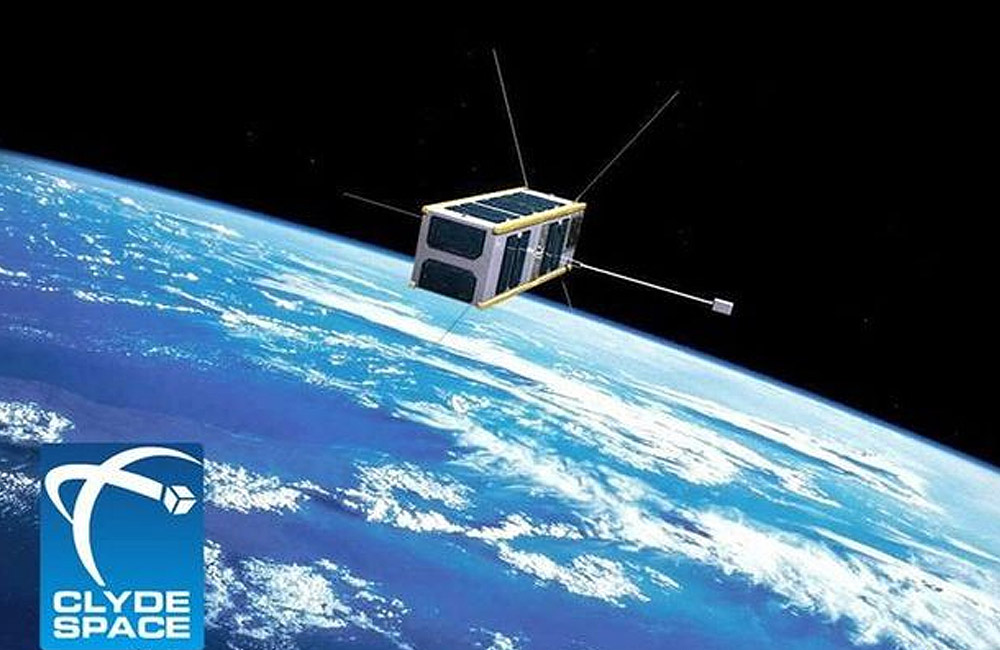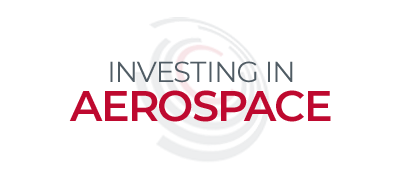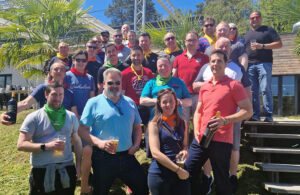Stephen Greenland, a systems engineer at Clyde Space the Glasgow-based company putting Scotland’s first satellite into space, has been awarded a major grant by one of the UK’s most prestigious scientific bodies.
Stephen has been awarded the acclaimed Industrial Fellowship by The Royal Commission for the Exhibition of 1851, one of only eight fellowships granted by the body every year.
The Fellowship, worth £80,000, helps pay for tuition and travel expenses as well as part of the fellow’s salary to allow them to study for a PhD while working in industry.
The Royal Commission, established by Prince Albert to stage the Great Exhibition of 1851 at Crystal Palace, supports developments in science and technology.
Previous winners include Professor Peter Higgs, winner of the Nobel Prize for Physics for his work on the Higgs boson particle.
At Clyde Space, Stephen was jointly responsible for the proposal and implementation of the CubeSat programme, UKube-1, the first ever UK Space Agency commissioned nanosatellite. It is scheduled for launch from Baikonur Cosmodrome, Kazakhstan, aboard a Russian Soyuz-2 rocket in February.
As technical lead on the project, Stephen was awarded the Fellowship to further his work on nanosatellites with the aim of developing niche business opportunities involving quantum technology, distributed imaging and biosciences.
Stephen, from Glasgow, graduated with a 1st in Avionics and Aerospace Systems Engineering from the University of Manchester in 2005 before going on to specialise in space systems at Cranfield University, Bedfordshire, and the University of Tokyo. He joined University of Strathclyde in 2008 under a knowledge transfer agreement with Clyde Space with the goal of developing a comprehensive space systems capability within the consortium.
Stephen said: “It is time to explore the opportunities this brings and maximise return for the company and UK economy. For me, the Fellowship provides the opportunity to return to the world of academic research and gain my PhD, while retaining a foothold in the commercial world.”
Steve’s project aims to further the UKube philosophy of open access to space for novel research and business opportunity through collaboration simplifying, accelerating and standardising development tools and processes.
Bernard Taylor, Commission Chairman, said: “The Commission aims to encourage innovation across the breadth of British industry and funds the development of profitable and patented technologies. We congratulate Stephen on his success so far and look forward to following his success in the future.”
Science minister David Willets added: “The Government is committed to ensuring that the UK is the best place in the world to do science. To achieve this we must support the development of scientific ideas into commercially viable and profitable technologies. These in turn drive the economy and keep the UK ahead in the global race.
“The Royal Commission for the Exhibition of 1851 has been supporting this aim for a number of years. I would like to congratulate all the talented young scientists and engineers who have taken part in the Fellowships Award Ceremony. Their achievements, and ambitious plans for the future, show the diversity of talent and innovation that exists across the UK.”
Clyde Space CEO Craig Clark said: “The Industrial Fellowship from the Royal Commission for the Exhibition of 1851 is a fantastic scheme as it opens the opportunity to conduct long term research and capability expansion that we would not normally be able to undertake at Clyde Space.
“Stephen’s contribution to the UKube-1 mission has been outstanding and he fully deserves to be selected for the fellowship and I would like to thank and congratulate Stephen for his hard work on the project.
“The fellowship will focus on innovative approaches to enabling advanced CubeSat and nanosatellite missions within the UK and beyond and will also enable Clyde Space and the University of Strathclyde to continue to work together in advancing the field of miniature space.”







